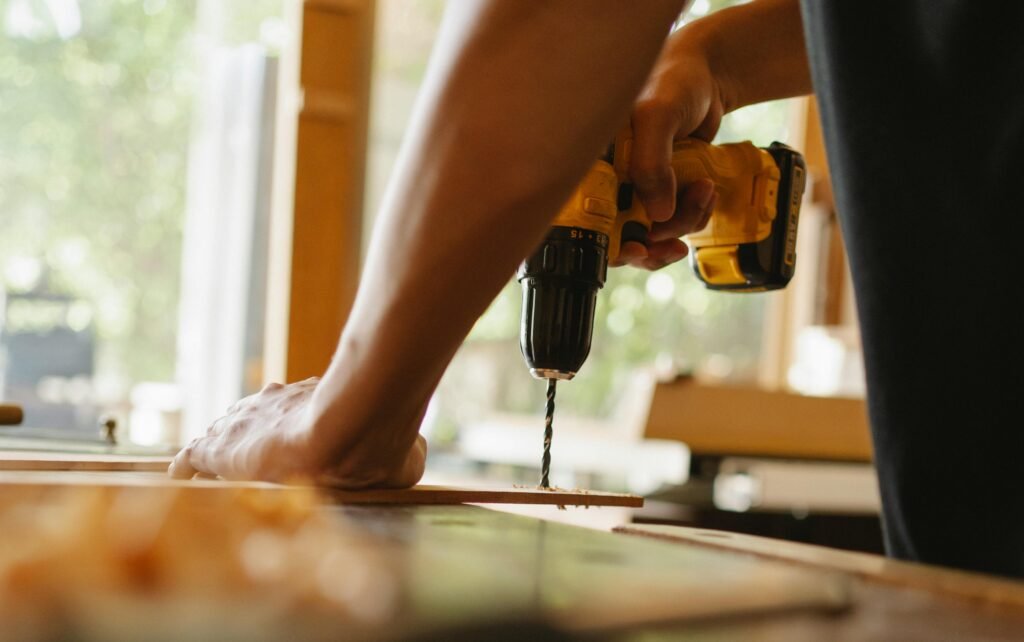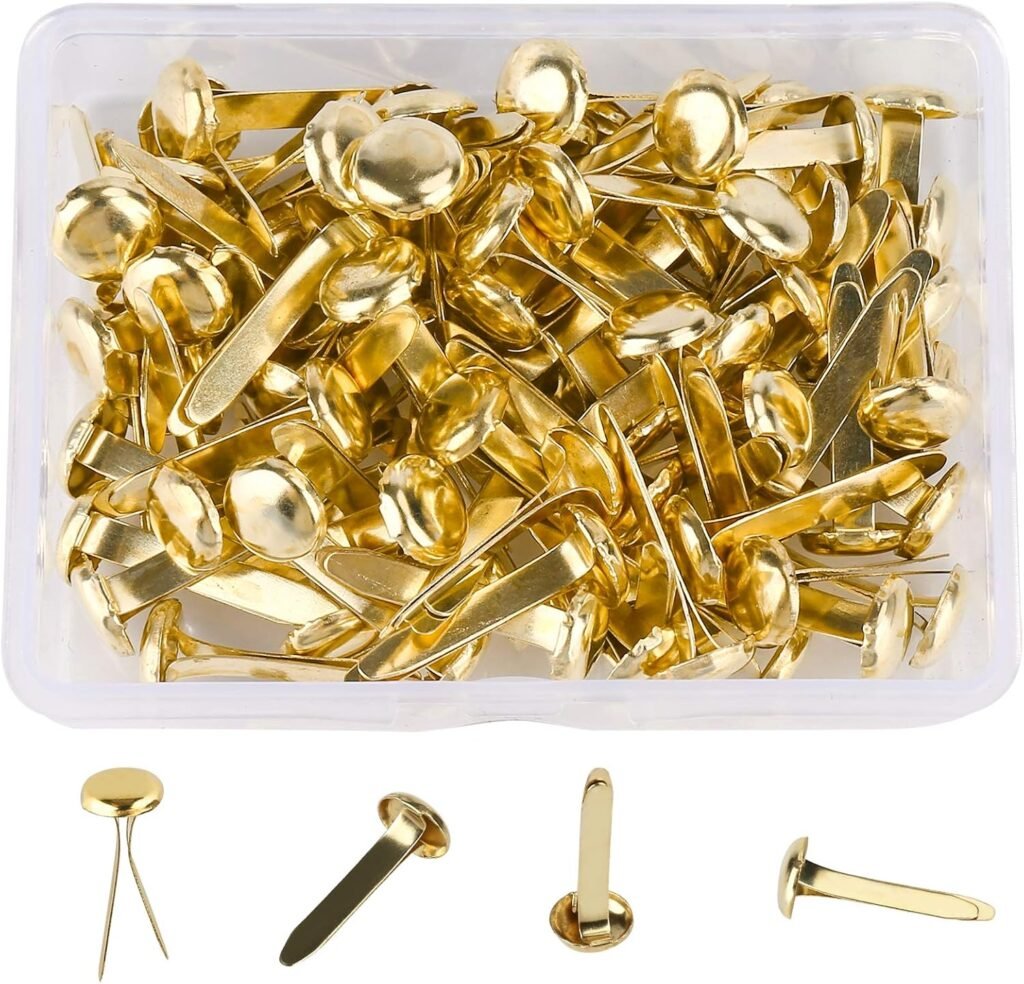Introduction to DIY Projects and Hardware Essentials
DIY projects have become incredibly popular, thanks to readily available information and resources. A key to success in DIY is understanding the different types of nails and screws. Choosing the right fasteners significantly impacts a project’s quality and durability, ensuring it lasts. Knowing which tools are needed is also crucial. Basic tools like hammers, screwdrivers, drills, and tape measures are essential, and using them correctly ensures both efficiency and safety.
Beyond tools, beginners should learn about different nail and screw types and their applications. For example, the choice between finish nails and wood screws affects how seamlessly pieces join and how visible the fasteners are. Familiarizing yourself with these options is beneficial. Ultimately, having the right tools and understanding fastener types will greatly enhance your DIY experience, leading to successful and rewarding projects.
Common Types of Nails Used in DIY Projects
When embarking on DIY projects, selecting the appropriate type of nail is crucial. Nails serve as fundamental components that join materials together, and each type is designed for specific uses. One common type is the finishing nail, characterized by its small head and slender shaft. These nails are often utilized in applications like cabinetry and trim work, where the nail holes can be easily concealed with wood filler, resulting in a cleaner finish. The sizes typically range from 1 to 2.5 inches, depending on the wood thickness.
https://amzn.to/4hl8kW0BOSTITCH Siding Nails, Wire-Coiled, Galvanized Coarse Coat, Ring Shank, 15 Degree, 2-Inch x .090-Inch, 3600-Pack (C6R90BDG)
Package Length: 13.72 inches x width: 24.4 inches x height: 35.05 inches
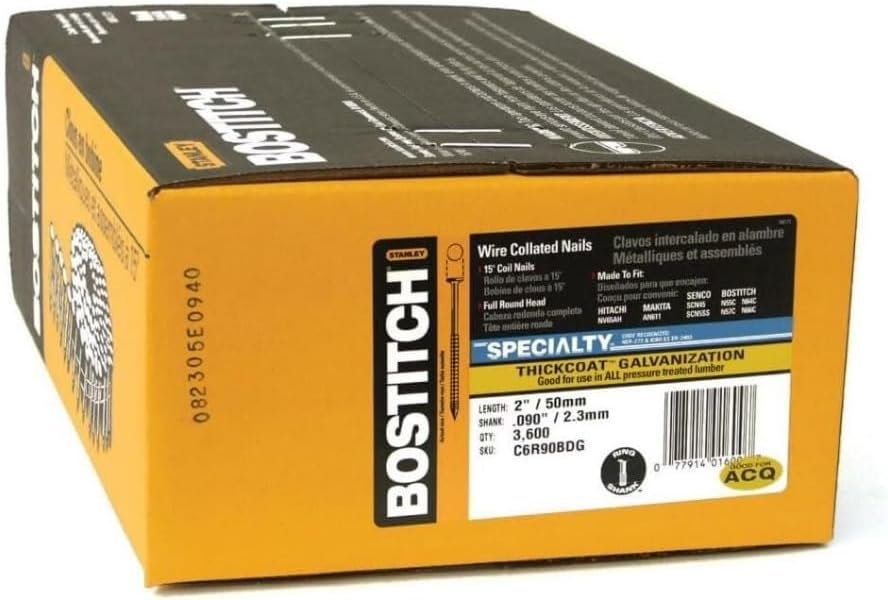
Another widely used type is the framing nail, which is more robust and designed for structural applications. These nails can range from 2 to 3.5 inches in length and are perfect for constructing frameworks for buildings, like walls and roofs. Understanding the size and material of framing nails is essential, as using the right gauge can significantly enhance joint strength in substantial projects.
In addition to finishing and framing nails, brad nails are a staple in DIY enthusiasts’ toolkits. They are smaller in size, generally around 18-gauge and 1 to 2 inches long, making them ideal for delicate tasks, such as attaching thin trim or molding without splitting the wood. Brad nails provide sufficient holding power while maintaining a low profile, making them less conspicuous when used in furniture assembly or lightweight applications.
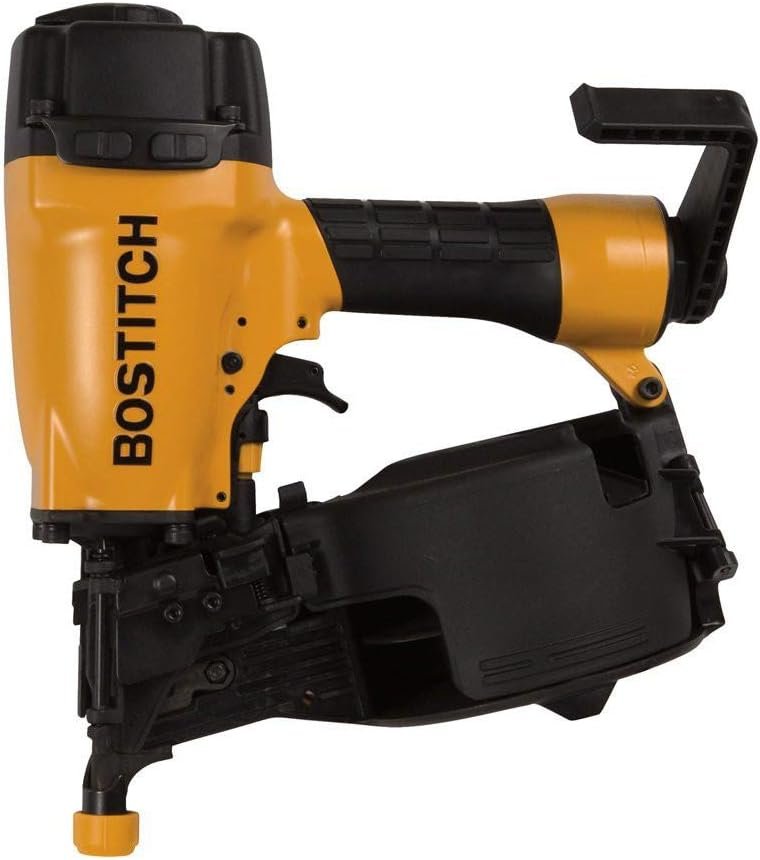
BOSTITCH N66C-1 Siding Nailer, 1-1/4″ to 2-1/2″, Aluminum Housing
The sliding nail gun drives wire welding and plastic inserted nails from the coil. The siding nailer’s adjustable depth guide sets nails at desired depths quickly and conveniently.
Other notable options include duplex nails, which feature two heads for easy removal, and masonry nails, specifically designed for attaching wood to concrete or brick. When selecting nails for a project, considering factors like the material being joined, the desired strength, and the overall appearance will help ensure a satisfactory outcome. With practical applications for finishing, framing, and delicate assemblies, understanding various types of nails can empower DIY enthusiasts to achieve successful results in their projects.
Exploring Different Types of Screws
Screws are fundamental fasteners in the realm of DIY projects, each type designed for specific materials and applications. Understanding the variety of screws available can significantly enhance the quality and durability of your work. Among the most commonly used types are wood screws, sheet metal screws, lag screws, and drywall screws.
Wood screws are designed specifically for joining or fastening pieces of wood. They feature a coarse thread that helps grip the wood securely, making them ideal for furniture assembly or woodworking projects. The tapered head allows for a flush finish, ensuring a smooth appearance on the surface. In a DIY project such as building a wooden bench, choosing wood screws is essential for structural stability.
KURUI Drywall Anchors and Screws Assortment Kit, 270 Pcs, 135 Plastic Wall Anchors and 135 Philips Flat Head Screws
5 Sizes for Various Projects – This wall anchors and screws assortment kit contains abundant size options, which are: #6 x 1 inch, #7 x 1 inch, #6 x 1-1/5 inch, #8 x 1-3/5 inch, #8 x 2-2/5 inch, all clearly assorted in a compact organizer box. With these most commonly used sizes of plastic wall anchors and galvanized Philips screws, you can handle almost all hanging projects like a pro.
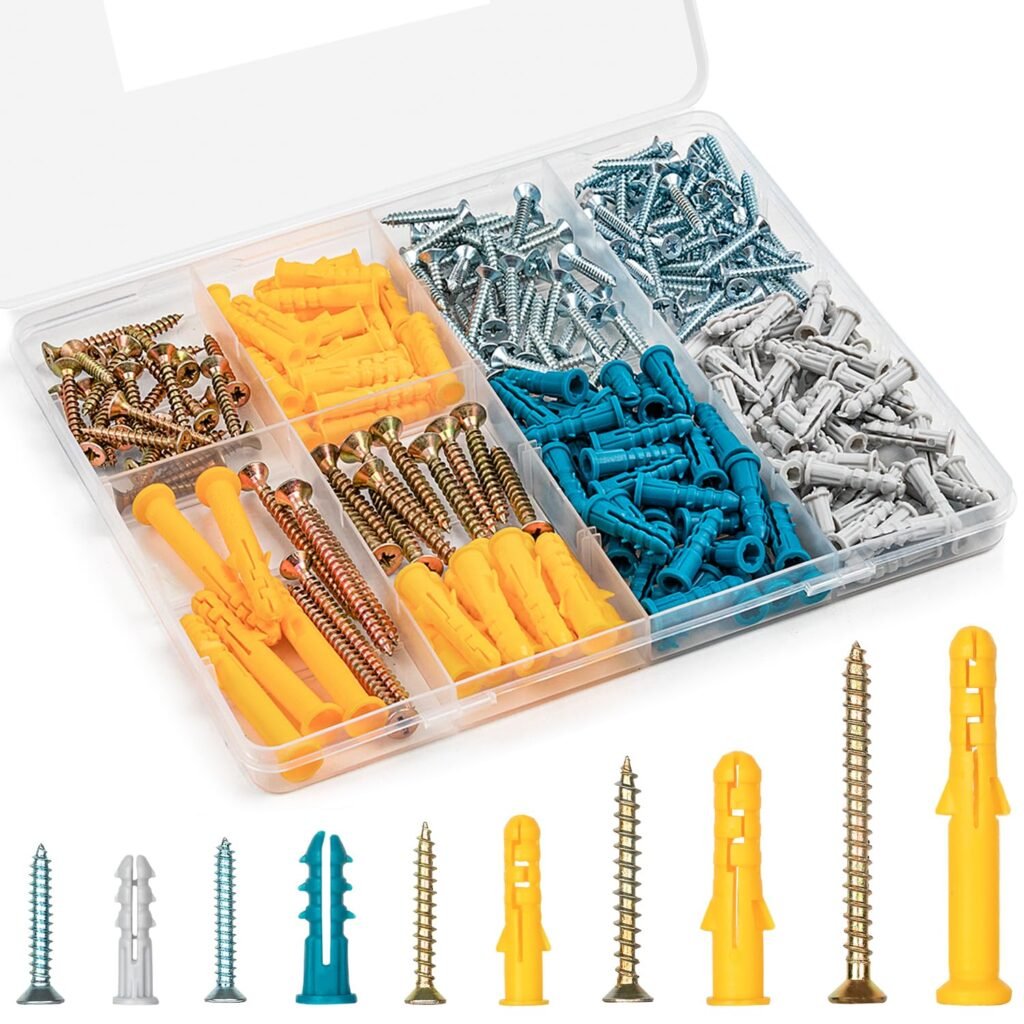
In contrast, sheet metal screws are constructed for fastening metal components. These screws are typically made from hardened steel to withstand the rigors of metalworking. Their sharp threads are designed to cut into metal surfaces, making them suitable for applications like mounting metal sheets to frames. For a DIY task involving metal roofing or flashing, sheet metal screws provide a reliable fastening solution.
Lag screws, commonly referred to as lag bolts, are used for heavy-duty applications. Their large diameter and hexagonal head allow for use with a wrench or socket, facilitating the installation into thick materials such as wood beams or heavy lumber. A typical DIY scenario might include securing a deck ledger board, where the strength of lag screws is crucial for safety.
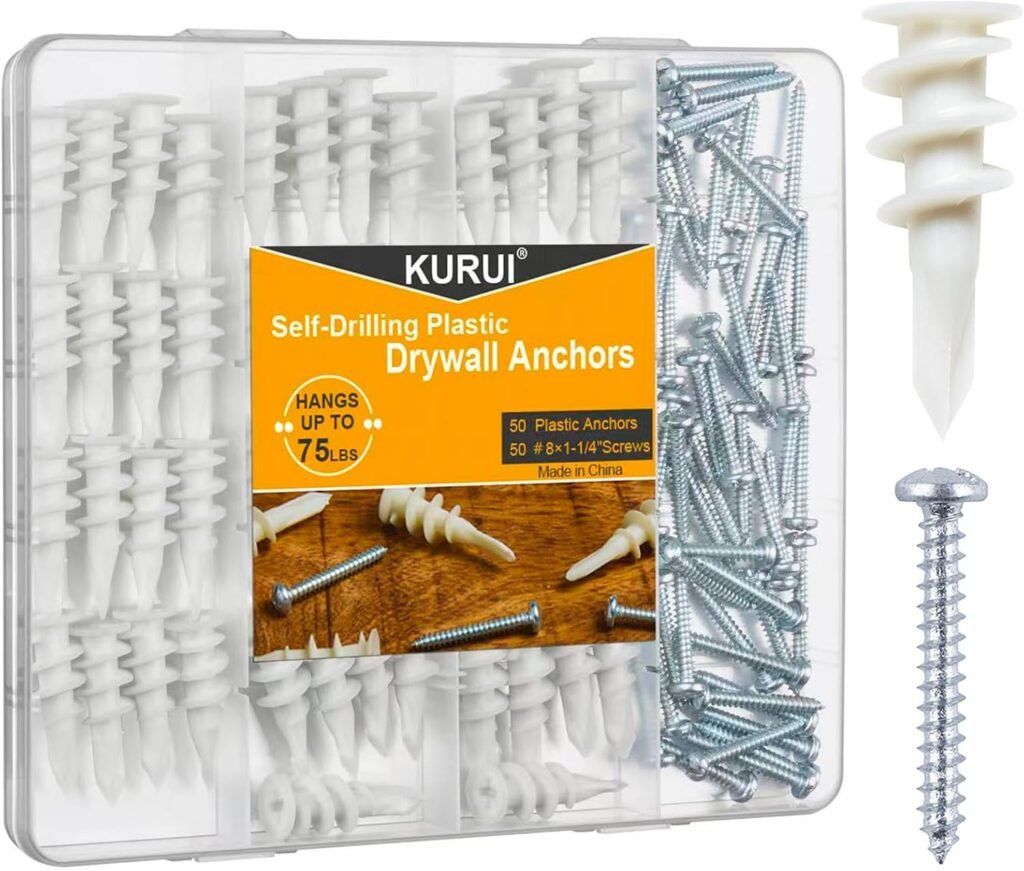
KURUI Self Drilling Drywall Anchors #8, 100 Drywall Anchors and Drywall Screws, 50 Self Tapping/Threading Plastic Sheet Metal Anchors + 50 #8 x 1-1/4″ Screws
High-quality nylon materials plus fiberglass: Made of high-quality hard nylon plastic mixed with highly robust glass fibers, these self-tapping threaded wall anchors are super hard, durable, anti-aging and wear-resistant. They can hold objects with a maximum weight of 75 pounds and provide a strong and sturdy grip on the wall, and the anchor will not damage the dry wall. 50 high-quality galvanized Phillips screws ensure reliable installation and hanging.
Lastly, drywall screws are designed specifically for hanging drywall sheets. They feature a bugle head and are available in various lengths, allowing for secure attachment without damaging the drywall surface. In a DIY home improvement project, drywall screws are indispensable for achieving a smooth, professional-looking finish when installing interior walls.
A clear understanding of these screw types can assist DIY enthusiasts in selecting the right fasteners for their projects, ensuring functionality and aesthetics in every task.
You may also be interested in knowing – The Ultimate Multitool Guide 2025
Choosing the right fasteners is crucial for successful DIY projects. Different nails and screws are designed for specific materials and applications, so understanding which type to use improves both project strength and ease of assembly. From wood screws for furniture to masonry screws for concrete, the correct choice impacts efficiency and the finished product’s longevity. Consider the project’s materials and weight-bearing requirements to make informed fastener decisions.
As DIY evolves, new tools and materials offer greater creativity. Staying up-to-date with these advancements, while carefully considering hardware choices, allows for better project outcomes. Reviewing the various nail and screw types is essential for tailoring fastener selection to specific DIY needs. Informed choices lead to confident project execution and lasting satisfaction.
Nails and Screws Nails and Screws Nails and Screws Nails and Screws Nails and Screws Nails and Screws Nails and Screws Nails and Screws Nails and Screws Nails and Screws Nails and Screws Nails and Screws

